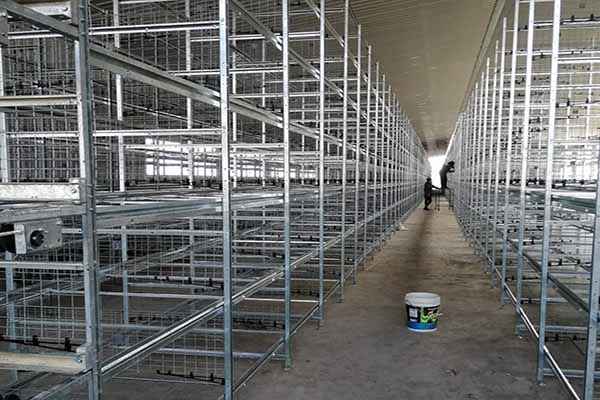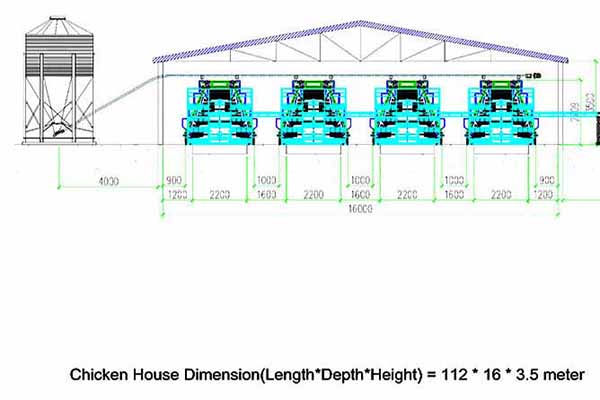How to Start a Chicken Farm in Alabama: A Comprehensive Guide
Time : 2025-06-27
Embarking on the journey of starting a chicken farm in Alabama can be both rewarding and challenging. The state offers a conducive environment for poultry farming, with its favorable climate and abundant resources. In this article, we will guide you through the essential steps to start a chicken farm in Alabama, ensuring that your venture is both profitable and sustainable.
1. Market Research and Planning
Before diving into the business of chicken farming, it is crucial to conduct thorough market research and develop a comprehensive business plan.
Market Research
- Identify Market Demand: Analyze the demand for chicken products in your target market. This includes broilers, layers, and specialty breeds. Alabama has a strong consumer base for chicken products, especially in urban and suburban areas.
- Competition Analysis: Understand the competitive landscape by identifying existing farms, processors, and distributors. This will help you position your farm effectively.
- Regulatory Environment: Be aware of local, state, and federal regulations that affect chicken farming in Alabama. This includes zoning laws, environmental regulations, and food safety standards.
Business Planning
- Define Your Business Model: Decide whether you will focus on broiler production, laying hens, or a combination of both. Consider the size of your farm, the scale of operation, and your marketing strategy.
- Financial Projections: Prepare detailed financial projections to estimate startup costs, ongoing expenses, revenue, and profit margins. This will be crucial when seeking funding.
- Operational Plan: Outline the day-to-day operations of your farm, including feeding, housing, and disease control. Consider the use of automated systems and professional farm equipment to improve efficiency.
2.选址与设施建设
Choosing the right location for your chicken farm is essential for its success.
Site Selection
- Climate and Weather: Alabama has a humid subtropical climate with hot summers and mild winters. Ensure that your chosen location can accommodate the needs of your chickens year-round.
- Proximity to Markets: Being close to markets will reduce transportation costs and ensure timely delivery of products.
- Accessibility to Resources: Access to water, electricity, and suitable land are critical for farm operations.
Facility Construction
- Brooder Houses: Provide initial warmth and protection for newly hatched chicks. Consider using automatic feeders and waterers for convenience.
- Laying Houses: Design houses with nesting boxes, perches, and sufficient lighting to encourage egg production.
- Roosters and Breeder Facilities: Create appropriate housing for roosters and breeding birds, with facilities for semen collection and artificial insemination if necessary.
- Processing Facilities: Plan for a processing area if you plan to sell whole birds or meat. Ensure compliance with federal and state regulations for food safety.
3. Equipment and Technology
Investing in high-quality equipment and technology can significantly enhance the efficiency and profitability of your chicken farm.
Automated Feeding Systems
Automated feeders can provide precise feed rations, reduce labor costs, and ensure consistent growth and health of the birds.
Watering Systems
Robust watering systems, such as nipple or cup feeders, are essential for keeping the birds hydrated throughout the day.
Climate Control
Climate control systems, including fans, heaters, and cooling units, are vital for maintaining optimal environmental conditions in the houses.

Disease Control and Monitoring
Implement a comprehensive disease control program, including regular health checks, vaccinations, and biosecurity measures. Use modern monitoring systems to detect and manage diseases proactively.
4. Farm Management
Effective farm management is key to the success of your chicken farm.

Staff Training
Ensure that your staff is well-trained in all aspects of chicken farming, including animal husbandry, feed management, and disease control.
that your staff is well-trained in all aspects of chicken farming, including animal husbandry, feed management, and disease control.
Record Keeping
Keep detailed records of farm operations, including feeding, health, and mortality rates. This information will be valuable for analyzing performance and making informed decisions.
Marketing and Sales
Develop a robust marketing strategy to reach your target market. Consider selling directly to consumers, working with local processors, or supplying larger distributors.
5. Compliance and Permits
Ensure that your chicken farm complies with all relevant regulations and obtains necessary permits.
Permits and Licenses
- Environmental Permits: Obtain permits related to waste management, air quality, and water usage.
- Food Safety Certifications: Obtain certifications for food safety compliance, such as GAP (Good Agricultural Practices) or HACCP (Hazard Analysis and Critical Control Points).
Conclusion
Starting a chicken farm in Alabama requires careful planning, investment in quality equipment, and adherence to regulations. By following these steps and focusing on sustainable practices, you can build a successful and profitable chicken farm in the state.











